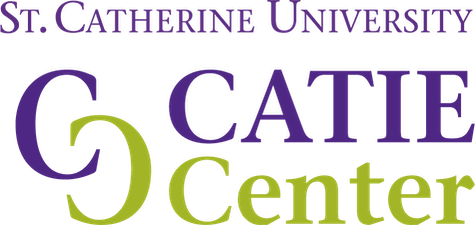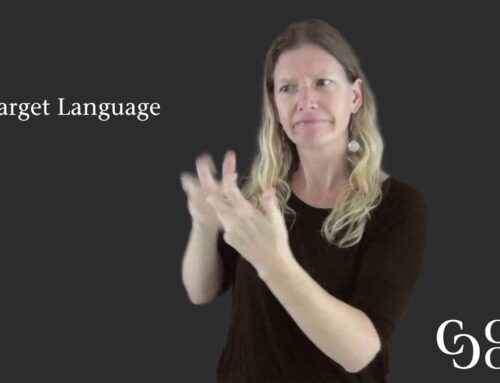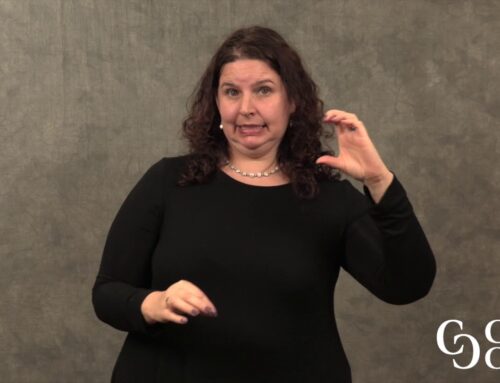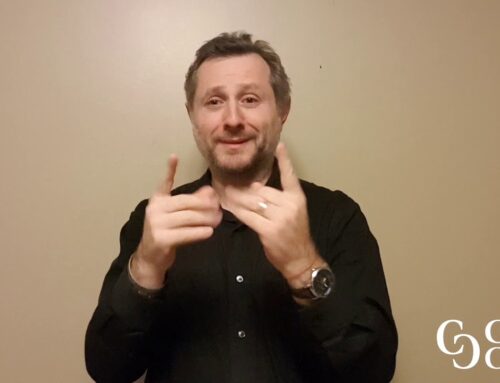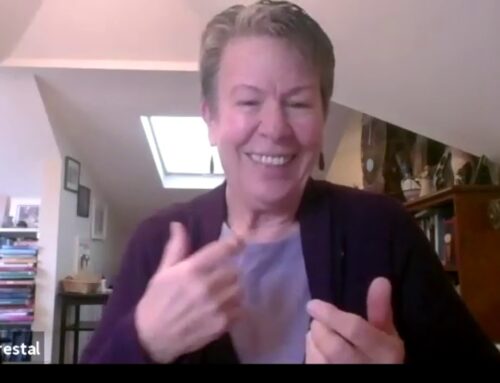 Developed by Doug Bowen-Bailey
Developed by Doug Bowen-Bailey
Competencies Addressed: Production: English discourse; Comprehension: ASL discourse
Time Required for Activity: 20 mins
Objective:
To consecutively interpret a video text explaining about one person’s experiences working with interpreters.
In this video, Nyla explains her various experiences working with interpreters.
This activity is the second in a series focused on:
Discourse Mapping | Consecutive Interpreting | Simultaneous Interpreting
Prediction
You will watch a video in which a deaf person explains in ASL about her experiences working with interpreters.
- What type of settings do you think she works with interpreters in?
- What do you think she sees as positive features of her interactions with interpreters?
- What do you think might be part of negative experiences?
Consecutively Interpret the Video
Depending on your need for preparation, you can either preview the video or start with consecutively interpreting the video. You can either pause the video on your own and decide where you think segments should be. Or you can use the pre-chunked segments that we offer her.
View view and pause on your own. (Video will open in pop-up window.)
Pre-Chunked Version of Video
Check Your Work
View the English translations below to see different versions of how this ASL text might be represented in English. We are working on creating multiple samples so you can see the variety of ways that this information can be translated.
Consecutively Interpret the Video Again
Now that you have seen a sample translation, return to the video and consecutively interpret it again. Choose the focus of your practice. Do you want it to be on the ASL comprehension? Or production of English discourse that matches the level of a person who has a graduate degree? Whatever your focus, give it a try again.
View view and pause on your own. (Video will open in pop-up window.)
Pre-Chunked Version of Video
Source Video
Translation by Doug Bowen-Bailey
I have had many experiences with interpreters, particularly in my journey through school, including my undergraduate and graduate experiences. (And I have just finished my graduate program. )
Most of my experiences with interpreters have been positive. I guess I would say that one thing I really appreciate about interpreters is if they are open to discussing the content of my courses. To talk with me about what I’m doing and where I am headed. Which makes me think about medical appointments. Medical appointments and academic settings are where I mostly work with interpreters.
I really appreciate interpreters who share their ideas about my class material or who are effective at matching my signing style. Some interpreters ask me directly for my language preferences. I usually respond that I want more ASL interpreting, but occasionally I will ask for more English-like signing so I can learn all of the technical terminology from the class content.
Another positive trait I see in interpreters is their openness and willingness to be friendly. This doesn’t mean that they lack professional boundaries and seek inappropriate information from me. Instead, they respect and acknowledge my humanity, rather than being too robotic in their approach. I have never appreciated interpreters who rigidly cling to a narrow role. That said, I do understand interpreters will have different personalities.
Most of my negative experiences with interpreters revolve around a lack of signing competency or an unwillingness to learn new things. If I share a new sign, some interpreters refuse to incorporate it. They might say that it is not what they learned or express skepticism about the legitimacy of the sign. I don’t appreciate comments like that.
Another negative experience really is just related to a general feeling of distance. I do understand that newer interpreters may have more rigid boundaries, but I am always open to connecting with interpreters who are warm and friendly. I don’t mean that we are going to be come super-close friends, just that we will be able to work together in a way that recognizes our common humanity.
